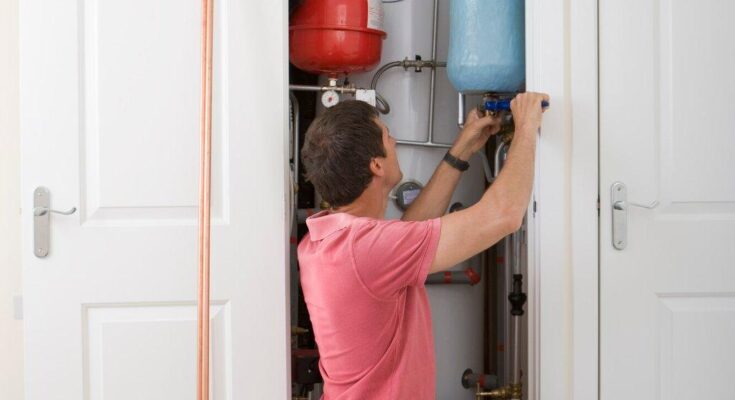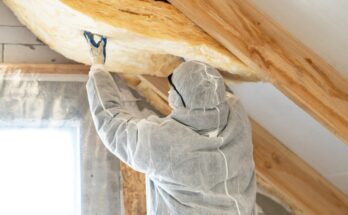Water heaters can be hard to maintain. That’s because water heaters tend to spring leaks without warning. Worse yet, a water heater leak can wreak havoc on your home if left unattended.
For that reason, many people like to know how to turn off a water heater in an emergency. However, more goes into that process than most homeowners realize.
Today, we will look at how to shut off the water to your hot water heater and what you must do immediately afterward. Read on to learn more about what to do if water heater is leaking.
Understand the Potential Dangers
In the event of a water heater leak, the first action to take is to turn the water heater off. This should be done immediately to prevent further damage. Once the water heater is off, it is essential to understand the potential dangers before continuing.
The water leaking from the water heater may contain harmful chemicals, such as a cleaning solution that can be toxic or flammable if exposed to an ignition source. In addition, if the water is exposed to wiring or other electrical components, it could cause a fire or shock.
Therefore, checking for any potential electrical hazards before continuing the repair is essential. Additionally, due to the potential of a large amount of water spilling out, it is necessary to have absorbent material on hand in case the leak is significant. Finally, it is necessary to shut off the power to the water heater to help prevent any shocks or fires.
Shut Off the Water Supply
When you experience a leaking water heater, shutting off the water supply is the next step. Locating the shut-off valve is the critical element of this process. It can usually be found near the water heater or in the basement near the primary water source.
Make sure to turn the valve clockwise until it is completely shut off. Once the valve is closed, it is essential to check all fixtures and faucets in the house to ensure no water remains. This should prevent any further damage from occurring due to the leak.
Once the water is shut off, it is time to inspect the water heater and determine the cause of the leak. If the damage is significant, it may be necessary to replace the water heater.
Disconnect Water Pipes
If a water heater leaks, the first step is immediately disconnecting the power and turning off the water at the main service valve. If this is not done, the water could cause further damage to the home. Disconnecting the water pipes is an essential next step.
The first thing that needs to be done is to turn off the water supply from the water heater so it is not flowing further. Next, any connected water lines should be disconnected from the hot and cold inlets on the water heater.
Be sure to place a bucket or pan under the water lines to help contain any water that may still have been in the pipes. Once all the lines have been disconnected, the issue should be inspected further to determine the leak’s source and the best course of action.
Clean Up and Dry the Area
It’s essential to mop up any excess water on the floor or walls of the area to prevent further damage. After mopping, you should use a wet-dry vacuum to suck up any standing water on the floor and walls. You’ll also want to apply a mild cleaning solution to the affected area and use a rag or sponge to clean and disinfect it properly.
If the leak causes damage to other surfaces, such as walls and floors, you may need to replace or seal the area to prevent further water damage. After cleaning the area, thoroughly dry it to prevent mold from growing, and cover any affected furniture or items with plastic until they can be adequately cleaned and dried.
Once the area is arid, you’ll need to inspect and repair any damages caused by the leak to return it to its original condition.
Assess the Damage
It is essential to locate and identify the leak’s source and all areas affected by it. Check for any structural damage to the roof, walls, and floor of the room where the water heater is located.
Look for signs of water damage, such as staining, warping, cracking, or discoloration on nearby walls, ceilings, and floors. If water has pooled in any area, it should be dried and ventilated immediately.
Any furniture affected by the leak should be inspected for water damage and replaced if necessary. Lastly, check the water heater for any signs of leaking or corrosion, and replace it if necessary.
Contact a Professional
A plumber can inspect the heater, determine the source of the leak and provide you with options for repairing or replacing the water heater. It may also be beneficial to drain the tank after turning off the water to help keep the damage to a minimum and prevent further damage to the surrounding area.
Furthermore, until the leak is fixed correctly, keep an eye out for any additional leaks, water pressure changes, or water temperature fluctuations. Taking these measures will help ensure your water heater’s safety and efficiency. A professional also helps you with your Hot water systems.
Disinfecting the Area
It is essential to wear protective gear such as gloves, face masks, and eye protection. Also, open all windows and doors to allow for good ventilation. Then it is necessary to use the appropriate disinfectant.
While scrubbing the affected area, make sure also to use a mild detergent. Make sure to wipe down all surfaces that may have been in contact with the contaminated water.
Dispose of any contaminated materials professionally, for example, double bagging and disposing of them at a hazardous waste site. Once the area has been thoroughly disinfected, it is time to repair the water heater.
Understanding What to Do if Water Heater Is Leaking
What to do if water heater is leaking? It is essential to act quickly and efficiently after turning off your water heater in case of a leak. Turn off the power, disconnect any hoses, and call an experienced, licensed plumber when in doubt.
Don’t take any risks with an emergency plumbing situation. Contact a professional today for the best outcome.
To learn more helpful tips, be sure to follow us.



